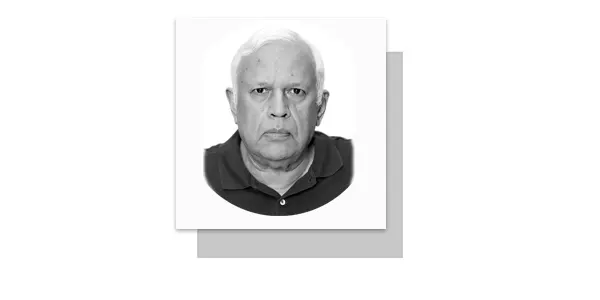IT is the politics of Muhammad Ali Jinnah, Allama Iqbal and the pioneers of our freedom struggle—men like Nawab Viqar-ul-Mulk, Mohsin-ul-Mulk, Maulana Shaukat Ali, Liaquat Ali Khan, Khawaja Nazimuddin, Haji Abdullah Haroon, Malik Barkat Ali, Qazi Isa and Sardar Abdur Rab Nishtar—that should serve as role models in Pakistan. There is no place for confrontation and use of force in a constitutional democracy. Politicians must choose their words carefully in public addresses, avoiding unparliamentary, abusive or threatening language. The derailment of political process, which started in 1954, has created chaos in this country. We have lost half of our country due to our own shortcomings and mindsets, which were exploited by known enemies who successfully disintegrated Pakistan in 1971.
The hybrid system orchestrated by figures like Iskandar Mirza and others has destroyed the vital balance between the aspirations of the citizens and the ruling elite. Political midgets created through political engineering have deprived Pakistan of the quality leadership needed to steer the nation out of the economic quagmire it is currently engulfed in. Unfortunately, the judiciary of Pakistan has often succumbed to powerful lobbies, delivering judgments based on external pressures rather than the law and constitution. The conflicts of interest of both our paid and elected elite have become an obstruction to the welfare of citizens. Judges must make decisions strictly based on the constitution and existing laws, rather than bowing to populist demands. Justice should be served, even if it means the heavens fall, instead of relying on the Doctrine of Necessity.
Under no circumstances should judges hold any foreign immigration status, including a Green Card. The Green Card is part of the process for acquiring citizenship, not merely a multiple-entry visa. There should be no confusion regarding this. A simple review of US immigration rules for acquiring citizenship through naturalization clarifies this point. Leaders like Imran Khan, Nawaz Sharif and Asif Ali Zardari must make honorable exits and give way to others who have their finger on the pulse of the people. They must demonstrate the character, wisdom, integrity and commitment to Pakistan exemplified by our Founding Fathers.
Almost half of our political and paid elite own assets abroad and many have either acquired immigration status or citizenship for themselves or their dependents. Those who have no stake in Pakistan must have no role in decision-making processes that affect the lives of millions living in this country. Over the last few decades, there has been a complete shift in the demographic composition of Pakistan’s political landscape. A new generation has come of age and now constitutes the majority of eligible voters. The mere announcement of mega projects by a few no longer appeals to the majority. Gimmicks like distributing laptops must cease and funds from the national exchequer should be invested in providing subsidized education to all citizens.
Primary education must be made compulsory, followed by mandatory matriculation at a later stage. Vocational training should be prioritized as part of a poverty alleviation program. Meritocracy must prevail in appointments to public office and in the composition of federal and provincial cabinets, instead of cronyism and nepotism. The practice of appointing family members must end. Only the best qualified should be selected, especially in the Senate and for advisory or special assistant roles. The civil bureaucracy needs restructuring and reform. Ministries must have specialists in relevant fields, rather than being run solely by men qualified as administrators. The majority of the youth reject the current political dynamics, where entrenched interests overshadow the democratic ideals envisioned by Quaid-e-Azam. Millions of lives were sacrificed in the freedom struggle led by Jinnah. It is time for major structural changes and reforms. For Pakistan to exist as a functional state, it is essential that everyone pays their due share of taxes, with no exemptions. The welfare and development of human resources can only be achieved if everyone contributes. Pakistan was created to be a welfare state for all its citizens, not a fiefdom for a few.
—The writer is contributing columnist, based in Lahore.










